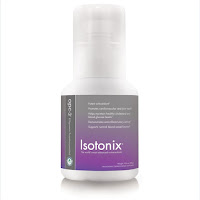Is Daily Aspirin Right for You?
Early in my career when I was running through hospital halls, coat tails flying behind me, headed to help someone in cardiac arrest—I pondered whether daily aspirin could prevent these types of calamities. It was the 1980s and there wasn’t a hard-working doctor who didn’t worry about having their own heart attack. Knowing that aspirin had the power to thin the blood, many doctors began adding a daily aspirin to their regimen.
Later on, once the efficacy was confirmed, it was decided an 81 mg baby aspirin could replace the hefty 325 mg adult dose. Bayer, the largest producer of aspirin, jumped at the chance to promote its pain reliever as the “wonder drug” in heart attack prevention, even in healthy individuals. Doctors began prescribing it to virtually every patient they had.
Daily Aspirin Increases Bleeding Events
Now, a new meta-analysis of 9 placebo-controlled trials challenges that practice. This month, the Archives of Internal Medicine published data collected from 100,000 people over six years showing that we have to treat 120 people with a daily aspirin to prevent just one nonfatal myocardial infarction (MI).
 |
| Super Antioxidant OPC-3 |
The Bottom Line on Daily Aspirin
* I don’t recommend an aspirin for primary heart attack prevention. While a daily aspirin prevents clot formation, the final step that triggers a heart attack, it doesn’t change atherosclerotic plaque which is the underlying cause of heart disease.
A far better way to prevent a heart attack is by keeping plaque from forming and building up in the first place. That means back to basics: a healthy diet, exercise, weight reduction, nutritional support with antioxidants and anti-inflammatories, blood pressure lowering, stress reduction
and so on.
and so on.
* But taking a daily aspirin for secondary heart attack prevention—if you’ve already had a heart attack or have a history of cardiovascular disease—is just plain good medicine. I regularly advocate aspirin for those who have known heart disease, such as a history of angina, heart attack, angioplasty or stent procedures, or coronary artery bypass surgery. In these cases, I recommend taking one baby aspirin daily.
But even if you have all the characteristics I just mentioned that would make you a perfect candidate for a daily preventative aspirin regimen, it won’t do you a lick of good if you’re part of the population known as “aspirin-resistant.” Fortunately, there’s a test to determine if an aspirin a day will work for you.









